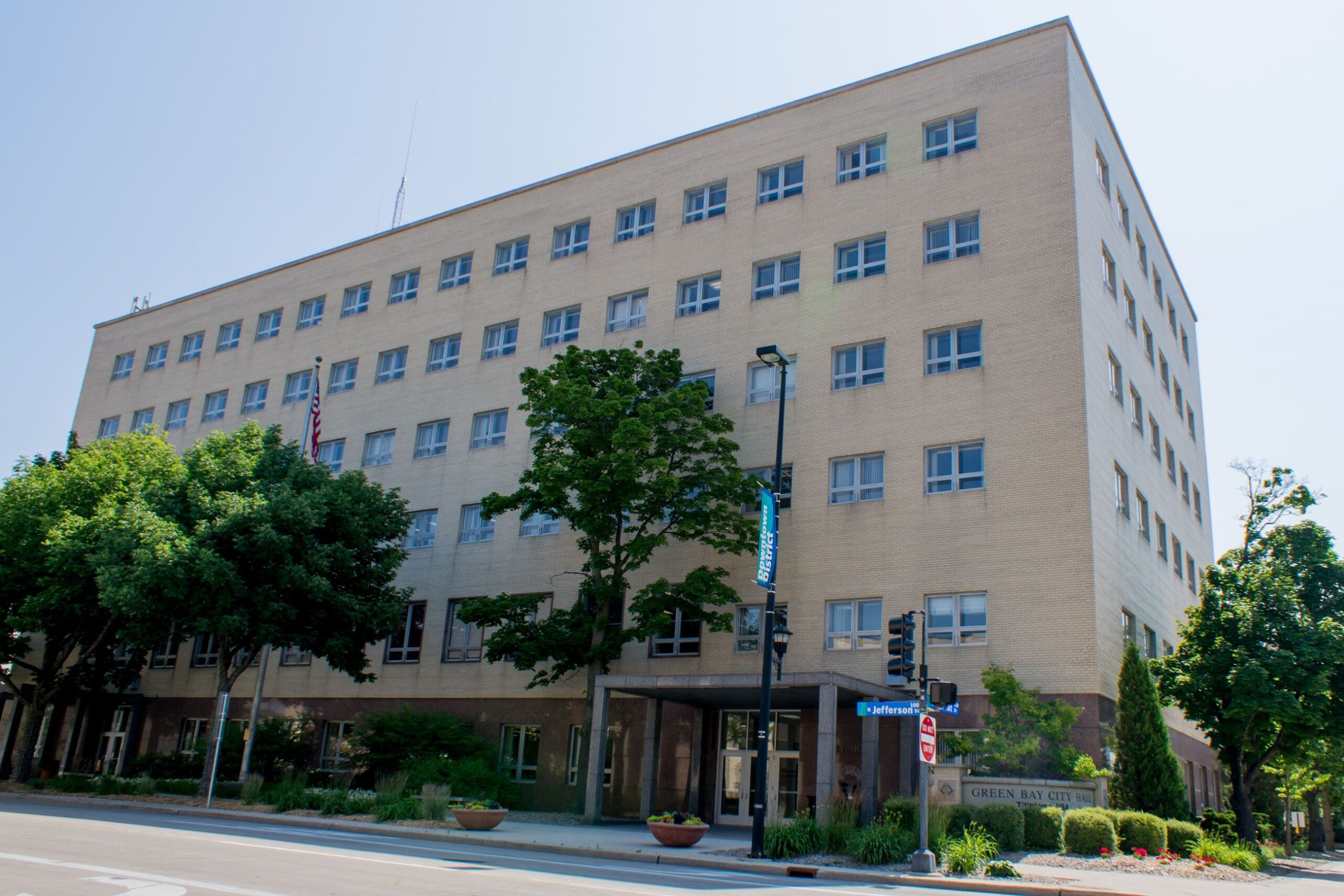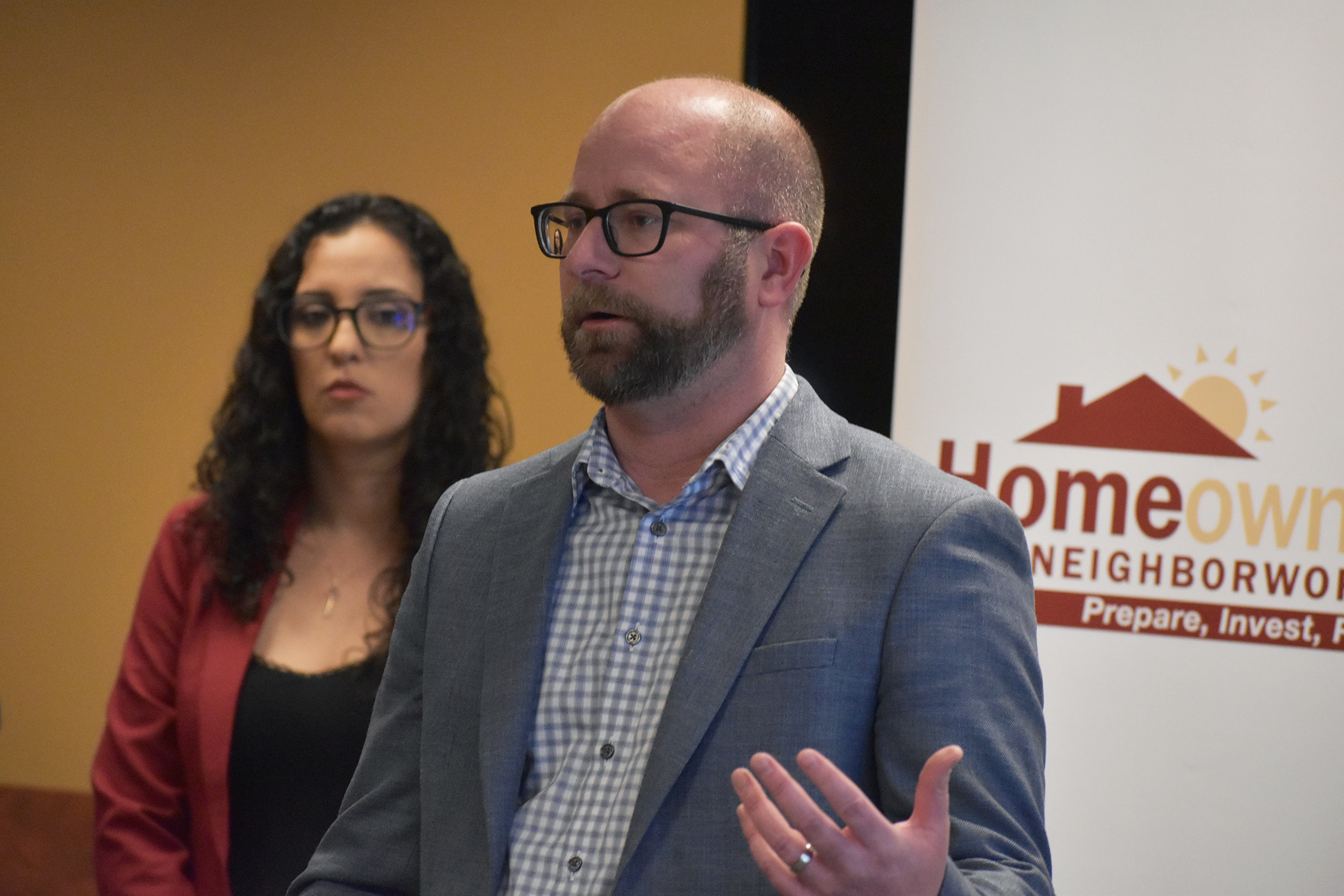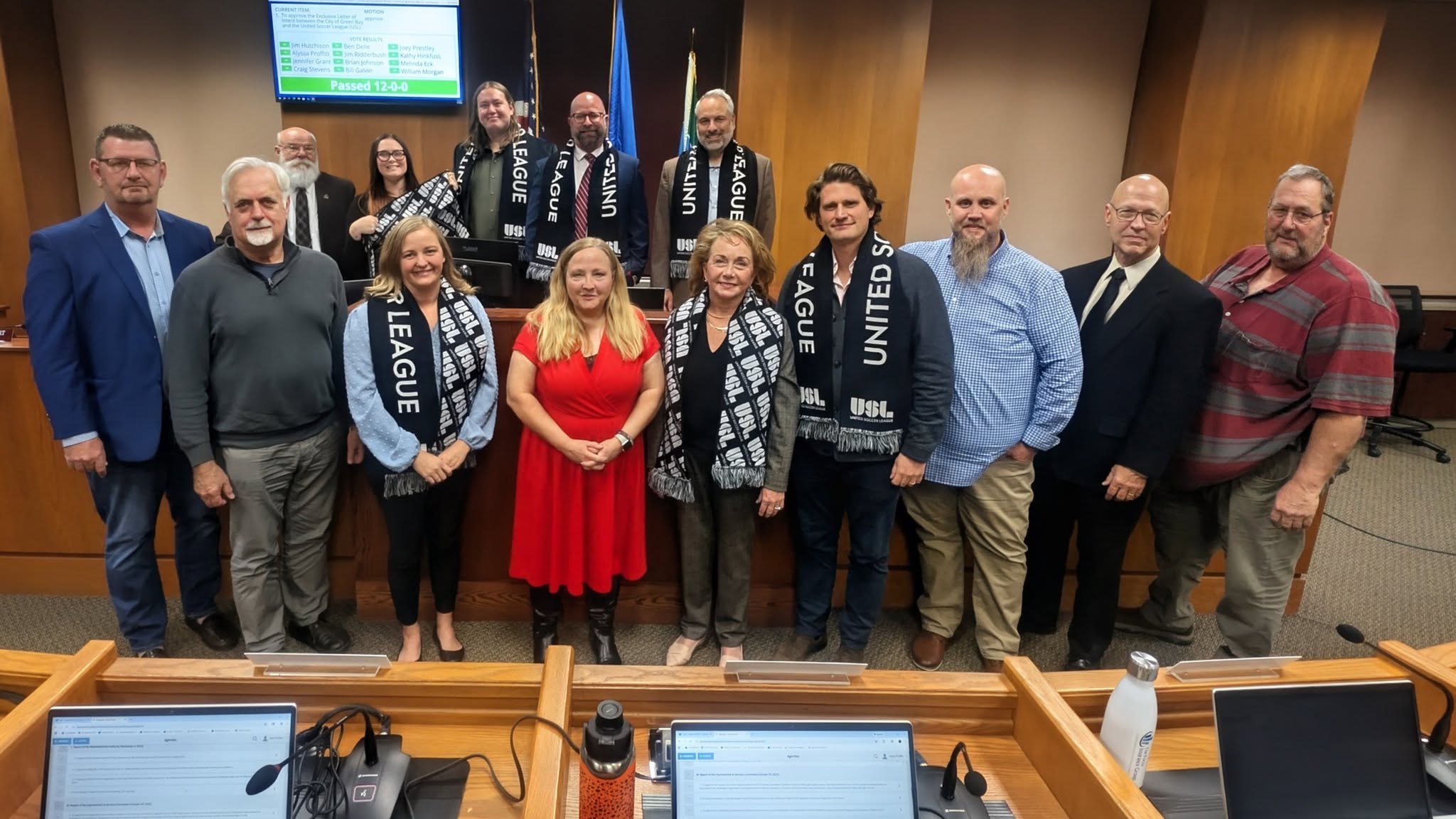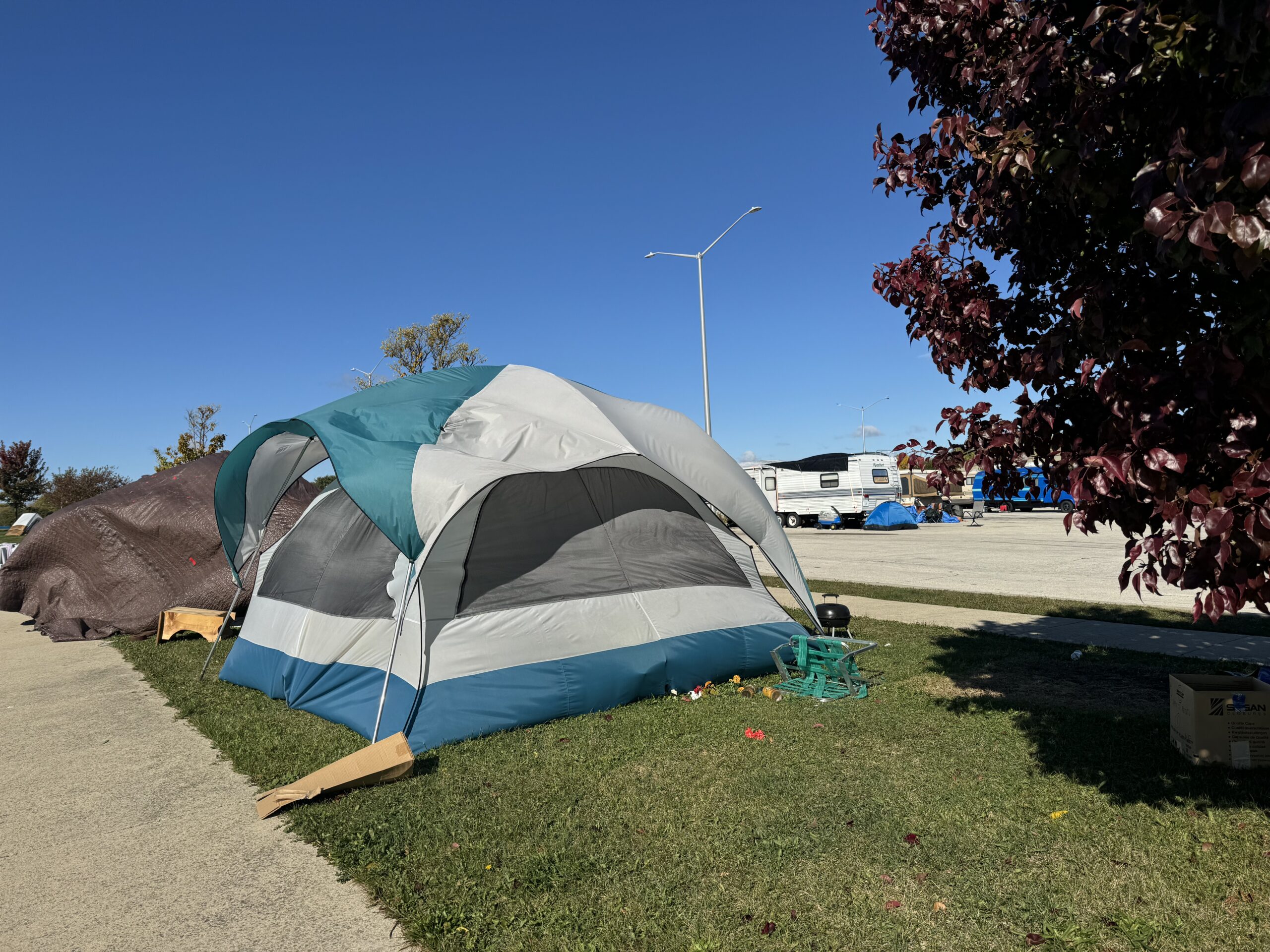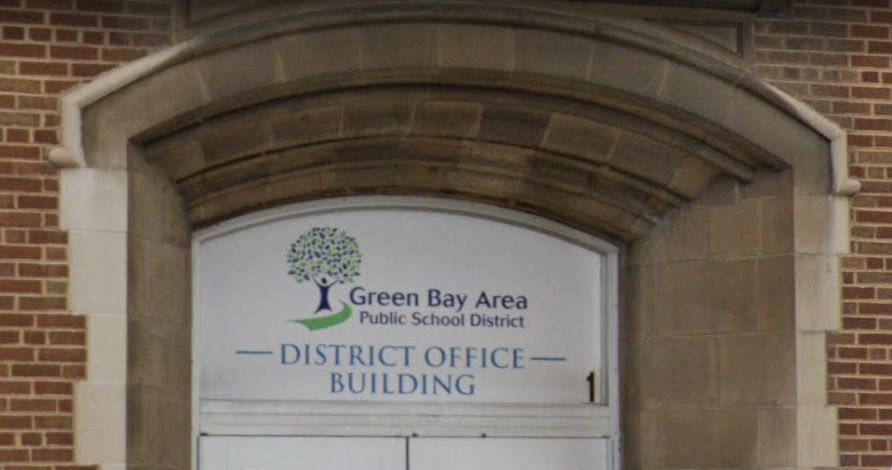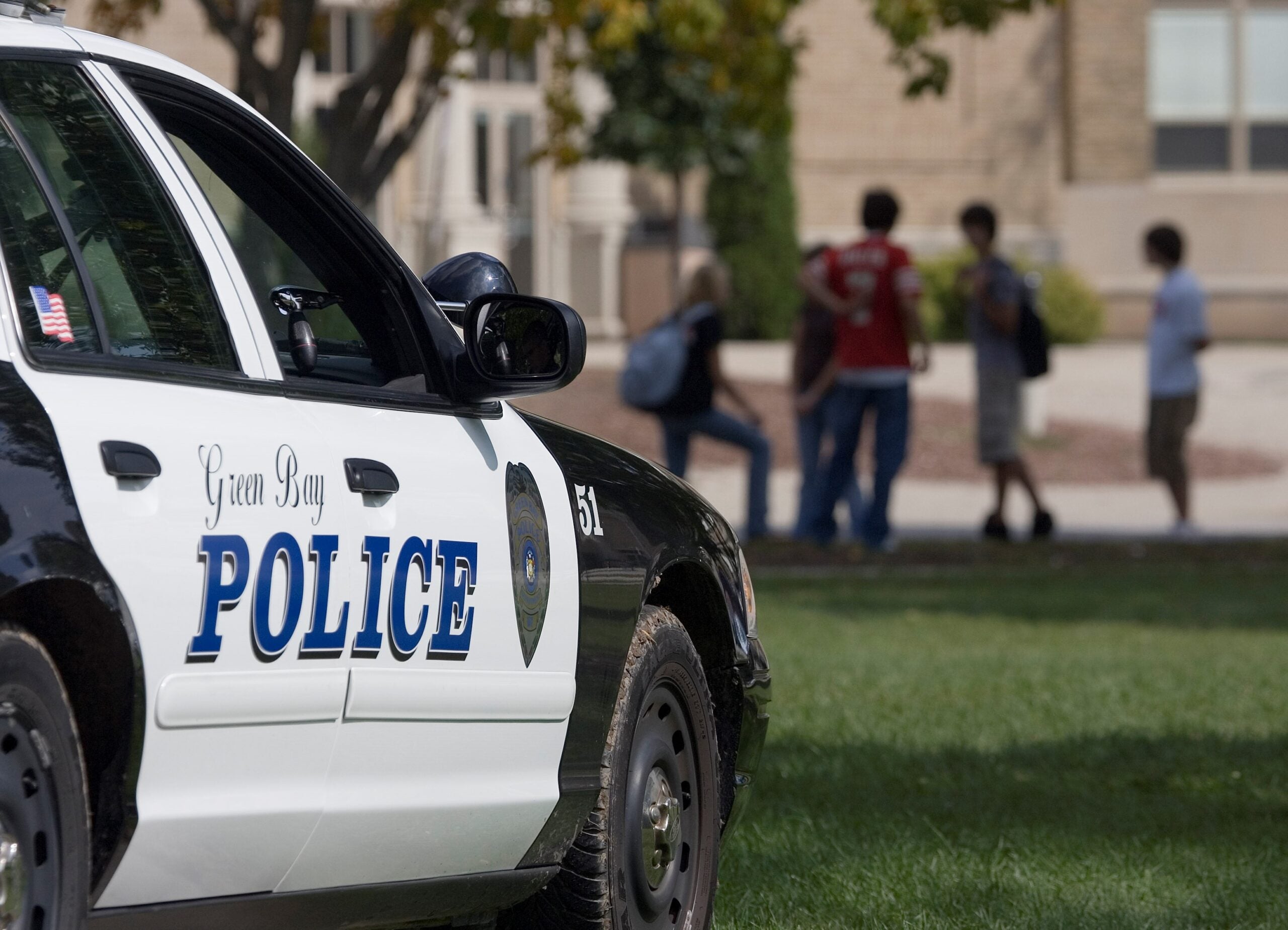Green Bay hopes to reduce violent crime by connecting the city’s most vulnerable residents with resources.
This month, the city announced the hiring of two “violence interrupters” and unveiled a community safety plan.
The city’s created an Office of Violence Prevention last year in response to a rise in gun violence after the COVID-19 pandemic. Gun-related incidents in the city increased from 18 in 2018 to 82 in 2021, according to the city. That number fell to 61 in 2022 and 38 last year.
News with a little more humanity
WPR’s “Wisconsin Today” newsletter keeps you connected to the state you love without feeling overwhelmed. No paywall. No agenda. No corporate filter.
At a recent press conference, Green Bay Mayor Eric Genrich said the community safety plan lays out a “holistic, public health approach” to violence prevention focused on supporting community members and “preventing cycles of violence from spinning out of control.”
“We believe that the addition of the (Office of Violence Prevention) represents a significant step in the continual process of building social connection and stability,” Genrich said.
Jerry Overstreet, director of the program, said his office will work to support the most at-risk individuals in the city by building relationships with other community organizations. The office is separate from the city’s police department.
He also said Green Bay received technical consulting support from the National Institute for Criminal Justice Reform.
“We all know, using this public health approach, the police department cannot solve all the acts of violence within the city on their own,” he said. “The police will have to do policing when needed, but we want to be at the forefront to prevent (them) from taking calls that maybe they don’t need to take, so they can dedicate their attention to other matters within the city.”
Overstreet said the violence interrupters play a key role in doing that work, tasked with doing community outreach and connecting at-risk individuals with resources, like education or mental health services. He said the city’s two violence interrupters are “well respected in the community” and have “been through maybe some traumatic experiences themselves.”
After a shooting incident, Overstreet said the police department may pass along contact information, so the violence interrupters can connect with those affected to prevent retaliation. Those staff members will also be stationed at local events to be visible in the community and help de-escalate situations that have the potential to turn violent, he said.
“Our violence interrupters will probably do some life coaching and connecting individuals that might not know that there are resources here in the city that can help them,” he said. “We want to make sure that our service providers are wholly known to those who need it the most.”
The two recent hires are currently being trained, and the city hopes to add another two violence interrupters by mid-summer, Overstreet said.
Green Bay Police Chief Chris Davis said he’s seen this concept of violence prevention work in communities much bigger than Green Bay, pointing to similar initiatives in Boston, Oakland and Portland.
When he worked for the Portland Police Bureau, Davis said he was at an event where two groups of people confronted each other and began arguing. Because some of the people involved in the confrontation had either been involved as victims or perpetrators of gun violence in the past, Davis said he remembers thinking, “This is probably going to turn into a shooting.” But it didn’t.
“Those violence interrupters came to the neighborhood and literally just got in between these two groups, and had some conversations with people,” he said. “It was almost like magic, (they) just de-escalated the whole situation.”
In a small city like Green Bay, Davis said he thinks the new effort could make a huge difference.
“A lot of bigger cities, I think, have just been put in the position of having to spend most of their energy around gun violence in reacting to something once it’s happened,” he said. “This project is trying to get us to a place where maybe we don’t have any because we’re able to address those root causes of violence that we know exist in this community.”
Green Bay’s Office of Violence Prevention is funded by a $1 million grant from the Medical College of Wisconsin. Overstreet said the city is looking at other funding sources to keep the effort going after the Medical College of Wisconsin’s grant funding runs out.
Wisconsin Public Radio, © Copyright 2025, Board of Regents of the University of Wisconsin System and Wisconsin Educational Communications Board.

